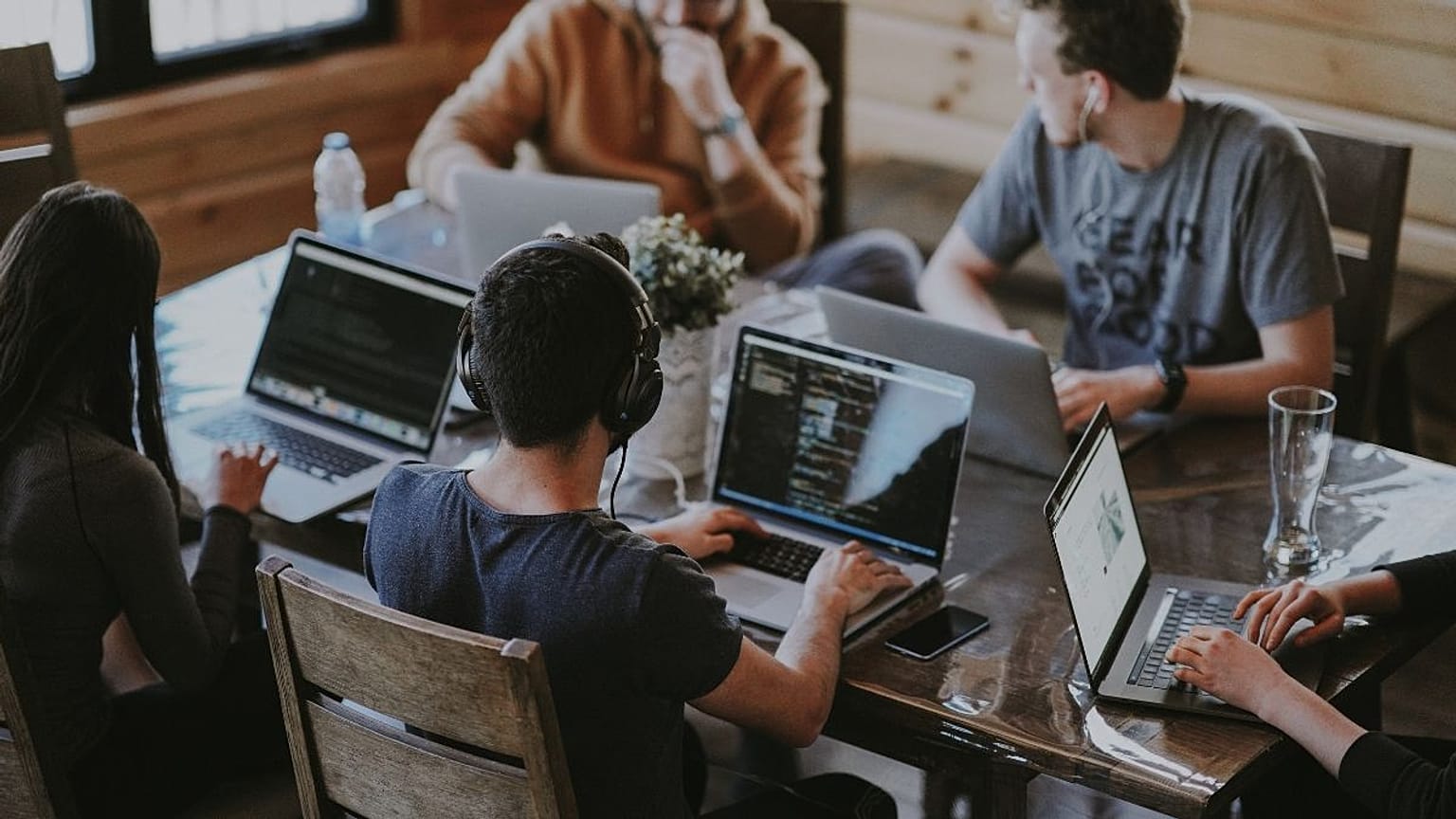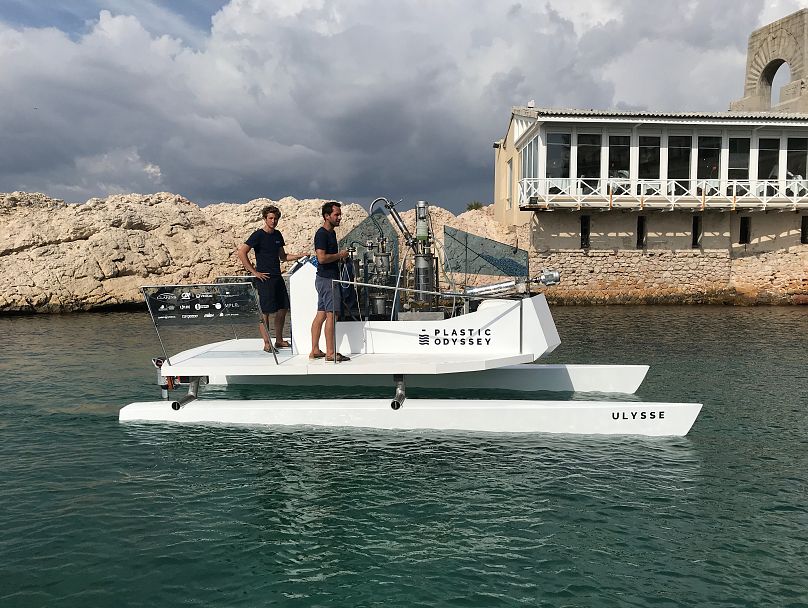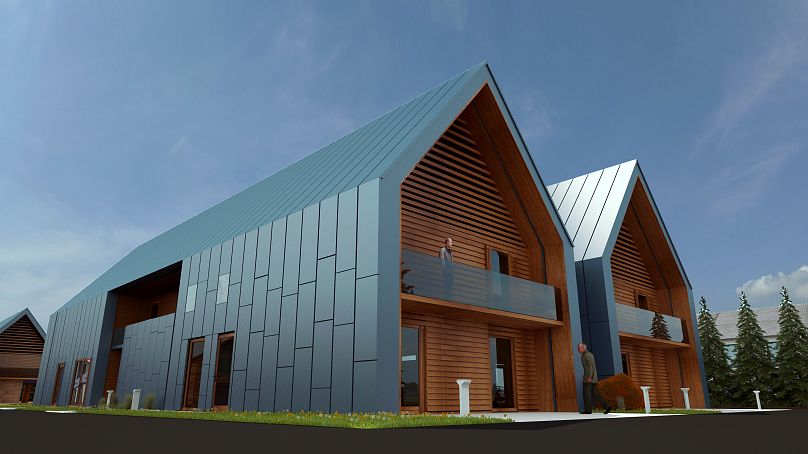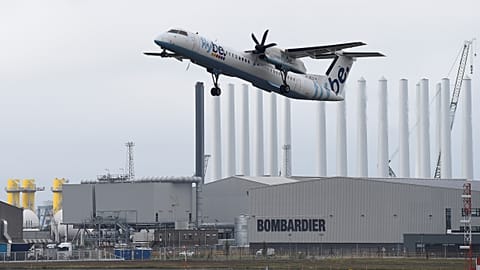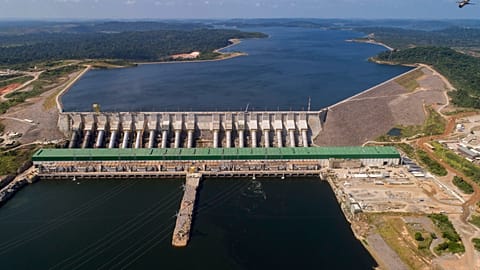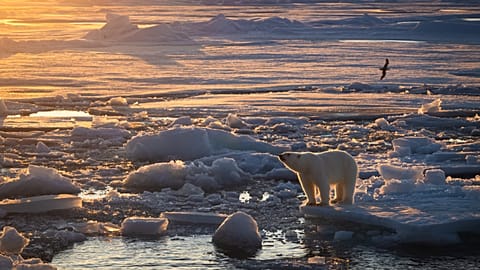What’s the solution to the climate and pollution crisis? Entrepreneurs from all over the world are currently working on proposals for a sustainable economy. Monaco's Transition Forum gathered some of the most important French sustainable startups.
What’s the solution to the climate and pollution crisis?
Entrepreneurs from all over the world are currently working on proposals for a sustainable economy as the world population will keep growing exponentially and global resources can’t keep being exploited at the current pace. We would need three planets to keep consumption at current levels
In this context and under an unprecedented heatwave battering France, the Transition Forum celebrated its second edition in Mónaco end of June. They brought together institutions, startups and investors under the patronage of Prince Albert II of Monaco and hosted by Aqua Asset Management with the motto “shifting to sustainable lifestyles”.
The Transition Forum was structured in 4 'conversations': Food, Mobility, Housing, Production & Consumption.
Startups attending reflected all the spectrum of sustainable economy: from self sufficient electric car stations, waste and water management, sustainable agriculture products or food waste reduction initiatives.
Here's a selection of some of the participants
The Camp
Based in the South of France, The Camp, created in 2013, is a living laboratory of sustainability. It was born of anger, says its President Olivier Mathiot. Anger to witness overpopulation, to witness a global “over metropolisation”; pushing populations to live in the least sustainable model: cities.
The Camp aims to think out of the box, with the future of the next generation in sight.
“Millenials are individualists, but they are conscious and aware of the current challenges we face,” states Mathiot.
The core of the project is their futuristic - and sustainable - hub, “a base camp to explore the future” gathering the main team and interdisciplinary guest projects. Corporations and individuals can apply to join the adventure. The Camp offers the space, but also training, advice, networking and laboratories for prototyping and experiencing. They are currently pushing projects on mobility, plastic pollution awareness or even a drone to analyse air quality in real time.
Plastic Odyssey
Simon Bernard, Co-founder of Plastic Odyssey was young merchant navy official when he docked at Dakar port and became horrified by the amount of plastic debris. He was also shocked by the number of people with low resources that were picking up the plastics to make some money of it. That’s how Plastic Odyssey was born.
Their aim is to take a boat around the world - with echoes of Jacques Cousteau’s Calypso - to spread their message against plastic pollution, and to deliver their low-cost plastics recycling devices.
“We are not seeking to clean the seas...we want people to avoid plastics being dumped into the sea. Afterwards is too late” he says.
The ship will be powered by plastic waste.
Phenix
Food waste management goes digital with Phenix, the French startup that allows merchants to dispose their surplus via consumers and charity organisations.
Through their app, available in roughly 20 of France’s main cities and some in Spain and Portugal, users can find food baskets of unsold products close to their homes and buy them at a decent price.
They mainly work with large supermarkets but are slowly opening to small retailers. When the products remain unsold to the public they offer them to charities (and the retailers get a tax reduction) and when the food is not anymore fit for human consumption it is sold to farms, zoos, or animal recovery centres, closing the food waste circle. They have successfully close a €15 million fundraising and have already 130 employees (from the initial 2 founders), and it keeps growing.
FGWRS
The technology developed by Monaco-based company FGRWS promises to recycle 80% of the domestic grey waters. “Water preservation is one of the key challenges for the future, it is about time that we stop sending drinking water into our WC,” says Pierre Magnes, its founder.
Recycled water can be used for the toilets but also for watering, cleaning or even in the shower or dishwashing. The technology was developed for the European Space Agency and it’s currently used at the French-Italian Antarctic research station Concordia.
On large buildings the system allows to reuse the heat. The system was shown - and in use - at the Monaco hotel where the Transition Forum took place.
Agilcare
Evolutionary, modular, detachable and mountable again houses with environmentally responsible materials.
The patented 'Nano' system allows Agilcare to erect permanent or temporary buildings that can evolve in time, or move several times. The young startup (born in 2017) has already built “moving houses” for families going through difficulties, exhibition pavilions… and their own offices.
Agilcare proposes their solution to public institutions and private companies or real estate agencies and have been certified as an 'Efficient Solution' by the Solar Impulse Foundation as a solution to “build, expand and move a building of high environmental quality without producing waste with renewable construction”.
Bovlabs
Few people know how to manage their electricity consumption and the energy they generate, but with the increasing flexibility of the energy market, there are more solutions to choose where does the electricity you consume comes from and where to ingest the energy you produce
With this idea, Bovlabs has created a peer to peer energy marketplace, allowing electricity consumers and producers to exchange using blockchain technology. A mobile phone app allows users to easily track the transactions. The startup has been boosted in The Camp’s incubator.
Their technology allows for example an electric car owner to put back into the energy market the extra electricity it generates.
Lumi’n
The French startup Lumi'in has created an innovative concept of autonomous solar lamp posts, custom made and hi tech as they can, not only light the cities at a minimum cost and zero emissions but also collecting energy consumption, weather or air quality data. They were awarded with the CES Climate Change Innovators 2019 at Las Vegas Consumers Electronics Show. Created in 2014 it employs nine people and has had a sales revenue of one million euros.
Urbismart
Urbismart calls for a Revolution of logistics, that would allow reducing drastically the increasing number of deliveries that we generate in the digital world. Using Artificial Intelligence Urbismart promises to reduce the number of empty trucks circulating in our roads and streets (and polluting). They believe in breaking the silos that keep companies isolated in their logistics operations. So the deliveries of 5 different companies, would go in the same truck, instead of 5, and it would be delivered at a single point in the area, close to all recipients.
E55c
Several of the Transition Forum startups bid on the widespread introduction of electric cars. E55c believes so much in it that has decide to invest, privately in charge stations and charging software. The business model is based on real use by consumers, so, they state, it guarantees partners and consumers that they will be involved to make reliable and performing electric charging stations.















